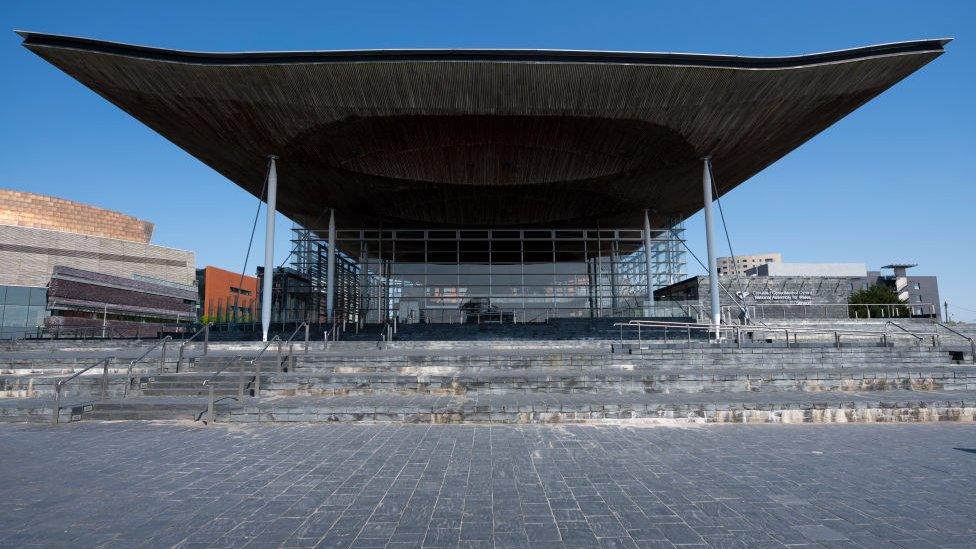Wales' voting changes will confuse people - Labour politician
- Published
- comments
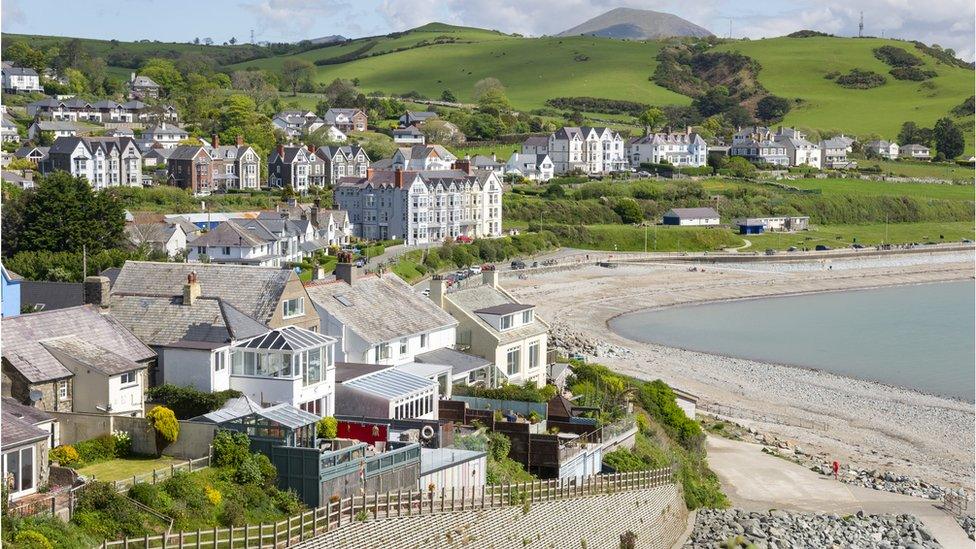
Wales will be divided into 16 new constituencies, with six members each
A new voting system for the next Welsh Parliament election will confuse people, a Labour politician has said.
Member of the Senedd (MS) Mike Hedges criticised the closed lists system his own party is proposing to elect a larger body with more members.
But the man behind new legislation to make the changes a reality said it was a compromise with no "unanimity" over what the new system should be.
Mick Antoniw said the new system would be far more representative.
BBC Wales has spoken to politicians from different sides of the debate ahead of a vote on Tuesday on whether to back the law in principle.
Welsh Conservatives remain opposed to the plans, while Plaid Cymru's Heledd Fychan said the Senedd has to expand.
With Plaid backing the Welsh government plans as part of its co-operation agreement the bill, also a Labour manifesto pledge, is likely to pass.
Advocates of a bigger Senedd say it has been long needed because its responsibilities have grown since 2011.
How will the new Senedd work?
At the next Senedd election the Welsh Parliament will be revamped, expanding from 60 to 96 members.
They will be elected from 16 new constituencies, formed by merging 32 Westminster constituencies drawn up for the next general election.
Each constituency will elect six candidates through a closed list. Voters will pick one party they want to support, but will not be able to pick a specific candidate.
Candidates will then be elected through a system of proportional representation.
At the last election voters got two votes, one for a politician elected through first past the post, and one for a party elected through a party list.
That has sparked concerns that the new system could reduce choice and erode trust.

Welsh government minister Mick Antoniw says closed lists are a "compromise"
What does the Welsh government say?
Mick Antoniw is counsel general - the Welsh government chief legal adviser and in charge of the legislation.
He told BBC Wales: "The Senedd has changed beyond all recognition and it desperately needs an increase in size to fulfil its functions.
"There is never a good time to say we need more politicians, but there is a time to say that we need something done to protect democracy; and that is the sell to the public. "
Mr Antoniw called closed lists "a compromise".
"But there is a whole series of different views on what the system should be, and no unanimity."
The new voting system will be "a far more representative system than first past the post and it will get rid of the regional vote system, so every vote will count," he said.
The legislation includes the potential for a review of the system after 2026 if the Senedd feels there is a need for a change.
Mr Antoniw said ministers were still working on their plans for gender quotas for the elections, which have been delayed.
"I have always said it has to be within competence," he said, ensuring the Senedd has the legal authority to pass the law.
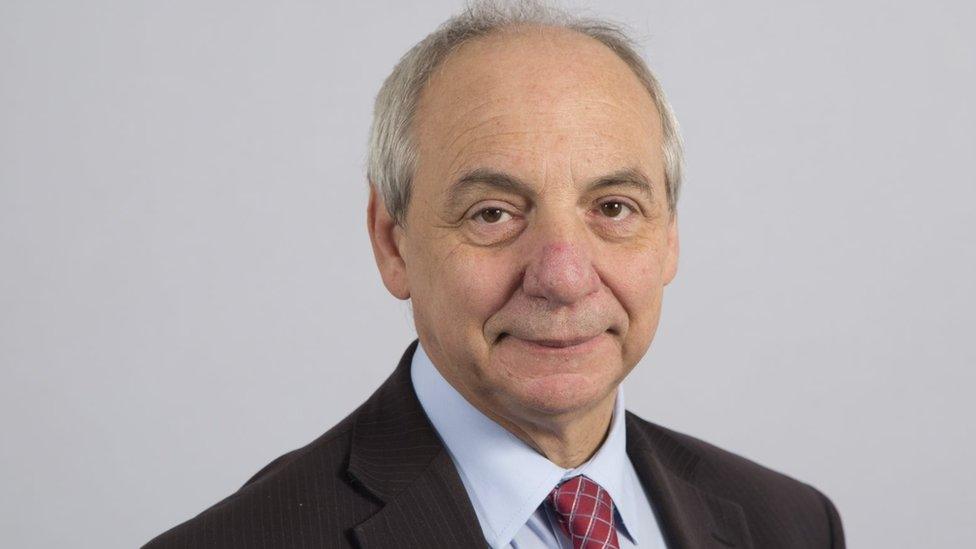
Labour's Mike Hedges is a former leader of Swansea council
'All the power will go to parties'
Mr Hedges, a Labour backbencher for Swansea East, said: "I can't see any advantages of the system being proposed.
"It is going to create very large constituencies. You could have one stretching from Lower Brynamman or Gwaun-Cae-Gurwen to the English border in Monmouthshire or the sea in Ceredigion - almost too big for people to feel part of.
"I think six MSs will confuse people. I knock on your door and say 'Hello, it's Mike Hedges. I represent you in the Senedd.' And you say: 'Oh no you don't, last week someone else knocked on the door and said they represent me in the Senedd.'"
He said closed lists "give all the power to political parties or leadership of political parties who will get to pick how high up the list you go. It will promote party-think and group-think."
Mr Hedges is in favour of three members being elected in each of the 32 Westminster consistencies. He said it would "make people closer to the people they represent".
"We do need enough members to scrutinise the legislature, but we have to sell it to the public."
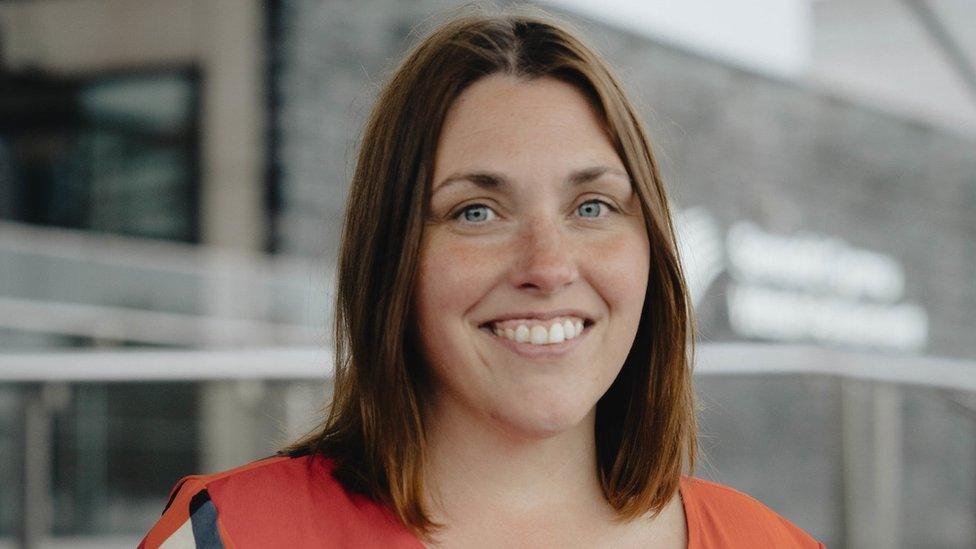
Plaid Cymru's Heledd Fychan says the Senedd needs more politicians
'We need more politicians'
Heledd Fychan, Plaid Cymru's South Wales Central MS and a member of the reform committee, said: "We need more politicians".
"I was on Rhondda Cynon Taf council and we had 75 councillors and we only have 60 Senedd members. It is really difficult to do a proper job of scrutiny."
"The size of constituencies is a concern, but everybody has five MSs at the moment. At least everybody would be on an equal footing which makes this an easier job to communicate.
"I am a regional Senedd member and it can be difficult for people now to know who represents you and hold you to account.
"And after 2026 the review means we get the chance to look at it again."
"On closed lists I will be very interested in the review", she said.
Ms Fychan is a fan of the single transferrable vote, where parties produce a list, but voters can decide which of their candidates they prefer.
"But at least we are getting rid of the least democratic system of first-past-the-post and having more proportional representation."
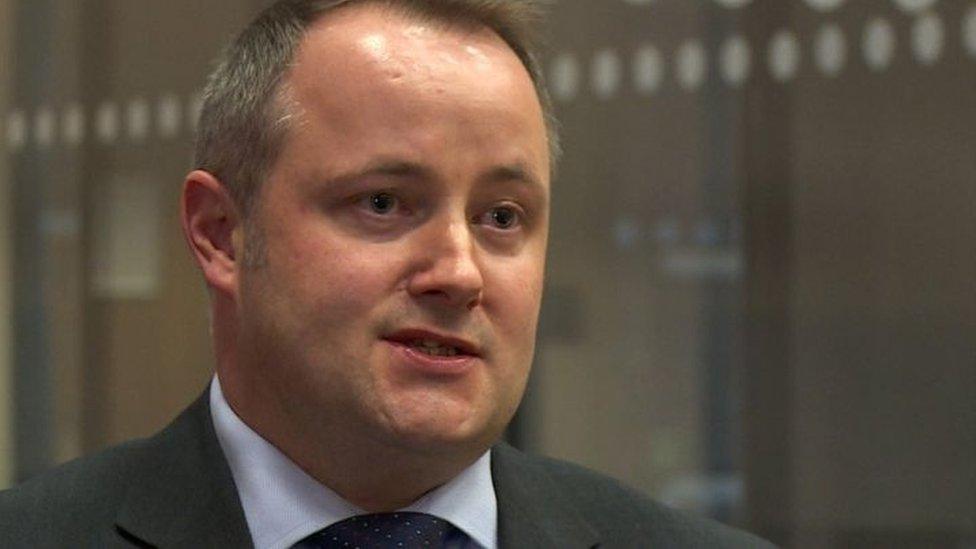
Conservative Darren Millar is opposed to the expansion of the Senedd
'A step backwards'
Darren Millar, Conservative MS for Clwyd West, was also a member of the committee scrutinising the bill.
He is opposed to Senedd expansion, and said a referendum should take place because it is "such a significant change".
"This is a real step backwards for people power and direct accountability. It doesn't show respect for the public and it puts the power over who's elected to the Senedd in the hands of party leaders.
"You will get candidates and MSs playing to the gallery of their own political party.
"And people don't want more politicians - I expect we'll probably never get to a situation where that might be the case - but we have a duty as elected representatives to respect that view."
"To suggest that we can't have effective scrutiny because of the size of the Senedd is a load of bunkum - look at the organ donation law, the smoking ban and plastic bags."
He did agree that an election should happen every four years, as proposed by the changes, and that candidates should live in Wales.

THE ELY ESTATE: Jason Mohammad and the reality of life in Ely
UNDER MILK WOODS: Listen to the dramatic portraits of five different areas of Wales

Related topics
- Published27 November 2023
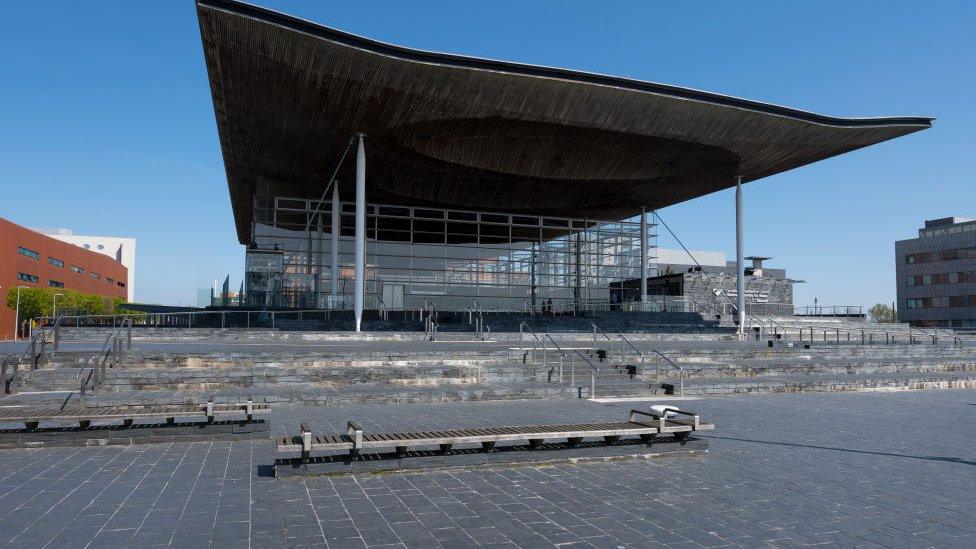
- Published6 August 2020

- Published6 May 2020
